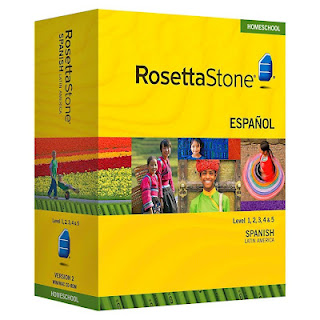 Q: How does Google make money from your searches? You know you don’t pay anything when you stalk your ex, scan Kobe’s lifetime stats, or check to see if your witness protection cover’s been blown. So how does Google profit from your internet curiosity?
Q: How does Google make money from your searches? You know you don’t pay anything when you stalk your ex, scan Kobe’s lifetime stats, or check to see if your witness protection cover’s been blown. So how does Google profit from your internet curiosity?
A: Google’s AdWords advertisement program.
AdWords works like this: You have a word or phrase in mind, you type that word or phrase into Google’s search engine and then you see what comes up. Instead of charging you, Google auctions ‘keywords’ to third party advertisers. When you start a search by typing in that keyword you’re directed to websites — or ”Sponsored Links” — that include the keyword in their sites. Google profits when you visit those sponsored links.
 Is this process legal? We’re going to find out because Google is being sued for the AdWords program by Rosetta Stone, Inc., the prominent language-learning software company. Rosetta’s claim is that Google sold its trademarked name (as well as its trademark ”language library”) to competitors that make and sell copycat language software. So, a Google search of ”Rosetta Stone” will lead you not only to its website, but also to the websites of its competitors. Rosetta Stone first sued Google for trademark infringement in federal court in Virginia. Like all trademark cases the issue is whether the Sponsored Links generated by AdWords create a likelihood of confusion. Google asserted that consumers were not confused because they can tell the difference between Sponsored Links and regular search results. It argued, ”We think that the legitimate use of trademarks as keyword triggers helps consumers to make more informed choices,” and that Google users benefit from being able to choose from a variety of competing advertisers.
Is this process legal? We’re going to find out because Google is being sued for the AdWords program by Rosetta Stone, Inc., the prominent language-learning software company. Rosetta’s claim is that Google sold its trademarked name (as well as its trademark ”language library”) to competitors that make and sell copycat language software. So, a Google search of ”Rosetta Stone” will lead you not only to its website, but also to the websites of its competitors. Rosetta Stone first sued Google for trademark infringement in federal court in Virginia. Like all trademark cases the issue is whether the Sponsored Links generated by AdWords create a likelihood of confusion. Google asserted that consumers were not confused because they can tell the difference between Sponsored Links and regular search results. It argued, ”We think that the legitimate use of trademarks as keyword triggers helps consumers to make more informed choices,” and that Google users benefit from being able to choose from a variety of competing advertisers.
The trial court agreed and booted the case on grounds that there was insufficient evidence that use of the keywords created actual confusion. It bought Google’s argument that the consuming public was sophisticated enough to distinguish between Rosetta Stone’s website and those of its competitors.
The U.S. Court of Appeals for the Fourth Circuit reversed the ruling and sent the case back to the trial court for further proceedings on all trademark claims.
Who cares? Everybody, as it turns out. The ultimate outcome of the case will affect virtually every brand name company or group that offers its goods or services online. Several major companies have weighed in with amicus curiae(”friends of the court”) briefs offering their support for Rosetta’s position. Big names that oppose the AdWords program include Ford, Geico, Carfax, Tiffany, Chanel, Coach, Viacom, Oakley, Tivo, Sunkist, Rolls Royce, as well as the PGA and the NFL. The gist of their argument is that most consumers find websites through Google by searching for trademarked brand names. When the most prominent search results that come up are advertisements for infringers or counterfeiters consumers are misled, and confusion between the legitimate trademarked brands and their imitators ensues.
Amici briefs have also been submitted in support of Google by eBay and Yahoo, who were joined by digital rights advocacy groups Electronic Frontier Foundation and Public Knowledge and the consumer advocacy group Public Citizen. They assert, as Google did, that the average consumer won’t confuse paid advertisements with search results, and that AdWords encourages competition and the free flow of information to the public.
This is the first time a court of appeals has determined that a company can bring a trademark infringement suit against Google on the basis that Sponsored Links are confusing to the general public. It remains to be seen whether more companies will jump on the lawsuit bandwagon and come after Google on the same grounds. However, a critical factor that persuaded the Appellate Court to reverse and send the case back to trial was its finding that Google knew that AdWords would lead to trademark infringement. Google’s own internal business analyses indicated that there would be ”significant source confusion among Internet searchers when trademarks were included in the title or body of the advertisements.”
The Fourth Circuit held that these studies showed ”that Google intended to cause confusion in that it acted with the knowledge that confusion was very likely to result from its use of the marks.” That doesn’t sound too good, does it?
The parties are now back to battling it out in the trial court in Virginia. I’ll let you know when it’s decided that Google’s AdWords scheme is working to enhance our consumer options or selling us out to The Dark Lord (of infringement).








Comments